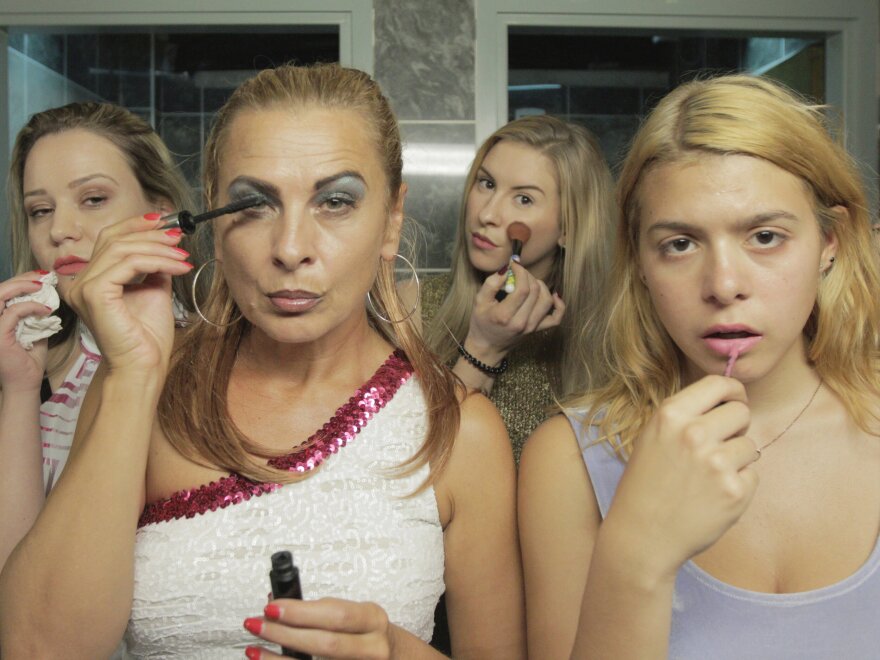At least since the post-World War II years, films from the countries that once comprised Yugoslavia have a goofy side — but serious goofy. The late Serbian director Dusan Makaveyev made wild films that rocked with lurid explosions of sex, politics, street theater and off-beat philosophy — all directed towards personal and political liberation. Bosnian filmmaker Emir Kusturica mixes family dysfunction with deep-seated mockery of Stalinism, and the craziness that followed.
Ena Sendijarevic’s Take Me Somewhere Nice fits right into that absurdist and unsettling tradition. She’s a Bosnian raised in The Netherlands, and so is her character Alma (Sara Luna Zoric). Alma is about to go back to Bosnia to visit her father in a hospital. Alma hasn't seen him in a long time. Her mother simply writes him off as "that bastard."
What follows is mostly Alma's visit to her own divided self in a place of random dislocations. She speaks Bosnian but doesn't much connect to being there. A grumpy cousin picks her up at the airport, takes her to his apartment and leaves her. She wanders the city and dyes her hair badly from brown to blonde.
Her father lives in a small town a good distance from Sarajevo. Alma wants to take a bus to get to him but faces a ticket clerk who doesn't care when busses run.
At a rest stop, Alma wanders off, the bus leaves and Alma has to hitchhike. And that leads to other improbables. The cousin and his friend, who fancies Alma, track her down, kidnap her, stick her in the trunk of their rickety car and drive off to find her father.
Director Ena Sendijarevic films all this from difficult angles to make the audience feel Alma's disconnect. Alma's shown in mirrors, but you don't know which is the direct view of her or which is the reflection. In tight spaces like toilets, the camera looks down, and makes the cramped places tight and disorienting. You can't tell what's up or what's down.
The sights make you wonder whether reality is stable. Alma watches a TV show on a creaky, amateurish set with a tap-dancing astronaut. Alma rarely reacts to what she sees or has to live through. She kicks and screams when cousin Emir and Denis shove her in the trunk, but afterwards, she wears the same blank face as before.
When the movie and Alma stare at long held images of wide empty spaces — the emptiness combines with the absurdity of what the characters are doing, and it feels baffling. The Bosnia that Alma tries to understand makes no sense.
The sensibility of Take Me Somewhere Nice is not like most American films — or films from anywhere for that matter. It's distinct, and unnerving, and it can be an acquired taste, but when you let yourself accept the strangeness, the movie is very funny because we share the sense of befuddlement far more than we like to admit. When a magician pretends to cut Alma in half, it's a teasing reminder that looking for our other half is a genuine feeling for human beings.
The times when the movie escapes absurdity come when Alma is outside — in mountains, dry rolling hills or the sea. These things are not confusing because human beings didn't make them.
When Alma stares for many seconds at some big sterile space or at some random event, the commonality of human experience comes clear. At heart, Take Me Somewhere Nice is about loneliness, disconnection and the urge for warmth and clarity with other people. The search for her estranged father isn't going to do Alma much good; it's the discovery of feeling that might get her out of this incoherent place.






